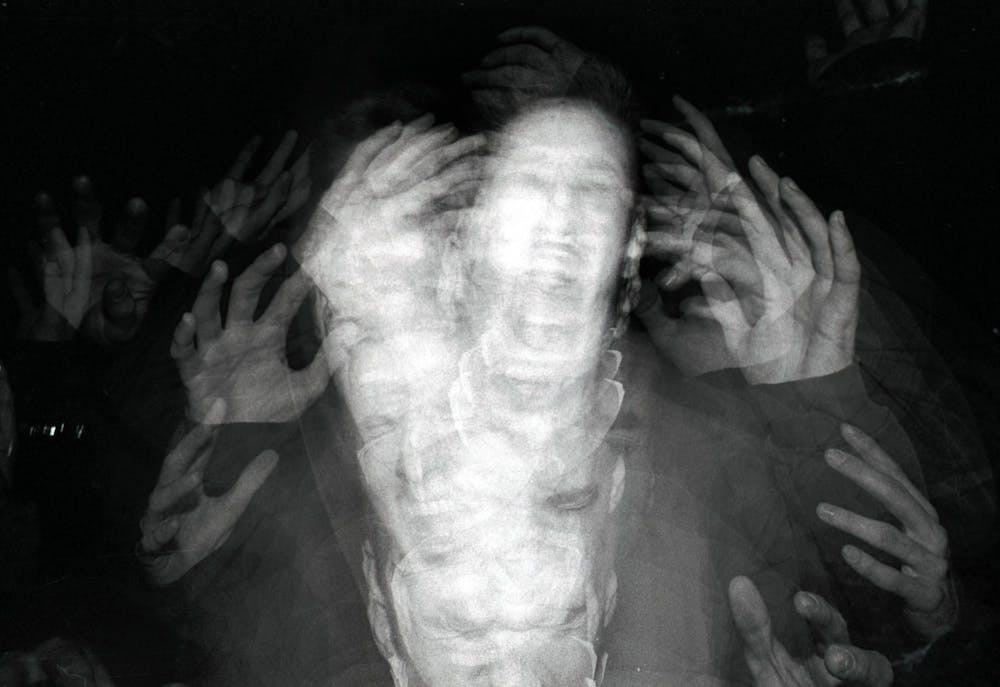Disclaimer: This article contains mentions of depression, drug use and other sensitive issues. For additional resources, contact the Substance Abuse and Mental Health Services Administration at 1-800-662-HELP (4357) or through ASU's mental health resources website.
I've been depressed most of my life. It started in middle school, when I got caught up in an unhealthy relationship.
In high school, I self-medicated with marijuana. I didn't realize I had "clinical depression" — I just wanted to not feel like garbage. Smoking with friends all the time certainly filled a void. My grades didn't slip much because I was good at maintaining the mask of sanity.
The trouble with pretending that everything's fine is that it only pushes you further down the hole.
With help from a new therapist, I realized untreated depression was the true catalyst of these bad life experiences. Instead of using drugs to cope, here are some more effective strategies that have helped me get through difficult times.
1) Take care of your body first
Good sleep is essential to good health. Make sure you're getting at least seven hours a night, removing any technological distractions an hour or so prior to falling asleep. I play white noise on a Bluetooth speaker and try to go to bed a reasonable time (1 a.m. cutoff). For me, a failure to reach this minimum has facilitated most of my depressive spells.
Exercise consistently. Make a plan to lift, do cardio or play a sport on a regular schedule. Getting the blood flowing is a great way to shake out psychological ruts and reset your brain chemistry. I recommend yoga; it's a cathartic means of connecting with your body and improves overall mindfulness.
2) Find wonder and promote gratitude
Look for ways to marvel at the simple beauty of human existence — that intelligent, conscious life metamorphosized from tiny atoms into a vastly interconnected network of billions. Admire nature's beauty and promote gratitude for things you appreciate. I often thank my toilet, which might sound stupid but in actuality is a convenient way to reframe your perspective outward (I'm damn grateful for sanitation OK).
3) Practice mindfulness
Acknowledge your feelings without judgment. Check in with yourself few times a day, performing a mental scan of the body and mind. Bring awareness to any tension and soothe it with positive affirmations and mental visualizations. Practice self-compassion by verbally praising your admirable qualities and recalling moments of self-love. Meditate.
4) Hang out with people that make you happy
Avoid those you don't like or don't vibe with. Find friends who share your values and interests (social media and the internet are solid places to network) and explore those ideas with them. Occasionally get out of your comfort zone.
Once you find the right people, you'll have a great support system to fall back on. It's nice to have a person you can always rely on in times of need.
5) Give things time
This one kinda sucks, but sometimes time really is the best healer. Be patient with the state of events in your life, understanding that whatever is happening is temporary. Remind yourself of future goals and events you're excited for.
The old Persian proverb "this too shall pass" is a good mantra to adopt. While depression can certainly be a rollercoaster of emotions, there will be days where you feel good!
6) Find a passion to invest in
Creating music, building a project, doing social work, playing obscure sport — whatever it is, spend a set period of time each day for it. Doing work that makes us happy is one the easiest ways to find meaning in life.
If you don't know what to involve yourself in, browse the web for fun hobbies that stick out to you. Make a list of values and ideas that are important to you, matching each with a potentially relevant hobby.
I loved to read when I was a kid, so I started making an active effort to read 30 pages a day. This has really helped me disengage from life's craziness and take time for myself to relax.
7) Help others
Helping others is a very easy way to decrease stress and boost happiness. When we act unselfishly, we think less of ourselves and our problems. A "big picture" lens is automatically flicked on in the mind, decreasing the relativity of our own issues. It feels good inside to know that you helped ease someone's suffering.
I won't deny the difficulty in finding motivation to do these strategies, especially if you suffer from horrible depression or lack the resources to actively take that first step. But if you trust even some of this advice, I think over time you'll notice marked changes in overall happiness and life perspectives.
Take refuge in the fact that millions of other human beings share your struggles. We'll get through this together.
Editor’s note: This story was updated April 13, 2023, at 8:50 p.m. to remove personal details pertaining to mental health experiences to protect the author’s privacy.
Reach the reporter at dgrossm2@asu.edu and follow @grossmantweet on Twitter.
Like The State Press on Facebook and follow @statepress on Twitter.
Continue supporting student journalism and donate to The State Press today.




